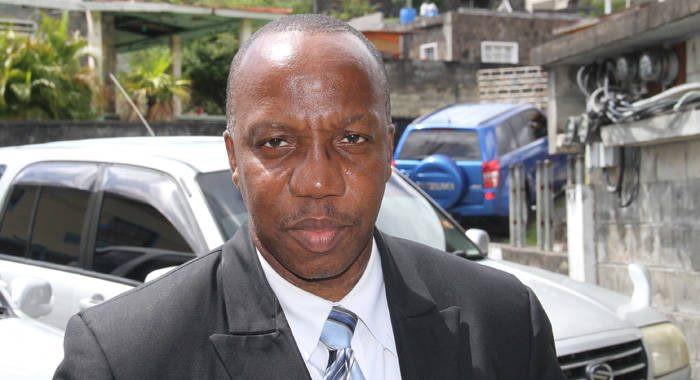Senior Magistrate Rickie Burnett says that no one informs him, formally, when Parliament passes new laws or makes changes to existing legislation or when they come into effect.
He made the point at the Kingstown Magistrate’s Court on Wednesday, a day when a student would be brought before him on criminal charges.
At the beginning of his sitting, Burnett asked prosecutor Police Constable Corlene Samuel how she is made aware of new laws or changes to laws.
The prosecutor asked the magistrate, “In terms of?”
Burnett said, for example, the passage of the Child Justice Act.
The Child Justice Act sets the age of criminal responsibility at age 12, up from age 8 and says that a child under the age of 14 years shall be presumed not to have the capacity to appreciate the difference between right and wrong unless this is proved otherwise.
The law will apply to persons under 18 years old who are alleged to have committed a crime. It also applies to any person who turns 18 before the proceedings that had been instituted are concluded.
Samuel said that prosecutors are engaged in training sessions at the National Prosecution Service and memos are also sent to that office.
Burnett said that he has been “out for a while” — acting as a High Court master for most of 2019 — and was sure that there would have been amendments to laws last year.
He noted, for example, the changes to the nation’s marijuana law, passed in 2018.
Burnett said that apart from “listening” and getting the Gazette, which is late from time to time, “it is possible that as a magistrate, I may not be aware of certain amendments”.
He told the prosecutor that a part of her responsibility is to draw those things to his attention.
Burnett was speaking at the beginning of a session in which a student, in uniform, would appear before him on criminal charges.
As the student entered the dock, the magistrate asked the student his age and he said 18.
The magistrate said, “Well, arhm—”
The prosecutor also responded, “Arhm. Arhm.”
“He’s 18,” the magistrate commented.
The prosecutor, however, noted that the accused is a student.
The magistrate said that he knows that the Child’s Justice Bill has been passed in Parliament.
The magistrate said he thought that he had read “somewhere” that the bill is in effect.
The prosecutor said that is the case.
“I think there are certain instructions in respect of whether the person is of a certain age or whether or not they are in school.”
Burnett said that “unfortunately I have not seen a copy” of the law.
The prosecutor said that she, too, had not seen a copy of it “up to this point”.
Samuel added: “But certain things were mentioned to me in respect of this.”
The prosecutor asked the student what class he was in and he said form 5 and that he had a lawyer, but the lawyer was not in court.
The magistrate said he would stand the matter down until the student’s lawyer arrived.
The prosecutor told the court that she was not even aware that that matter was coming before the court.
“If we do things how they are to be done, we’ll get along–” the senior magistrate said, apparently to no one in particular, even as he appeared not to fully give voice to his thoughts.
When the matter was recalled, the prosecutor asked for an adjournment to the following day, without the charge being put to the student.
And, on Thursday, the court heard that the Child Justice Bill was yet to come into effect.
The student pleaded not guilty to charges of burglary and handling stolen goods.
The matter was adjourned to August for trial.







Does the magistrate realize that most students begin to study for a profession only after they have finished high school (middle school) around their 18th year? Alyo got the place in a mess with Lazy, unthought-about and arbitrary sentencing. I wouldn’t want to be in a military battalion with alyo. Anyway, Magistrate, A student is at the start of their adult lives. School doesn’t finish after high school. If you want to make life difficult for them you need to go back to school. (on the other hand: no matter how much mayonaise you add to cow-shit it won’t become a steak) Suddenly I feel like writing ten more paragraphs but I guess you scholars done know everything so I won’t.